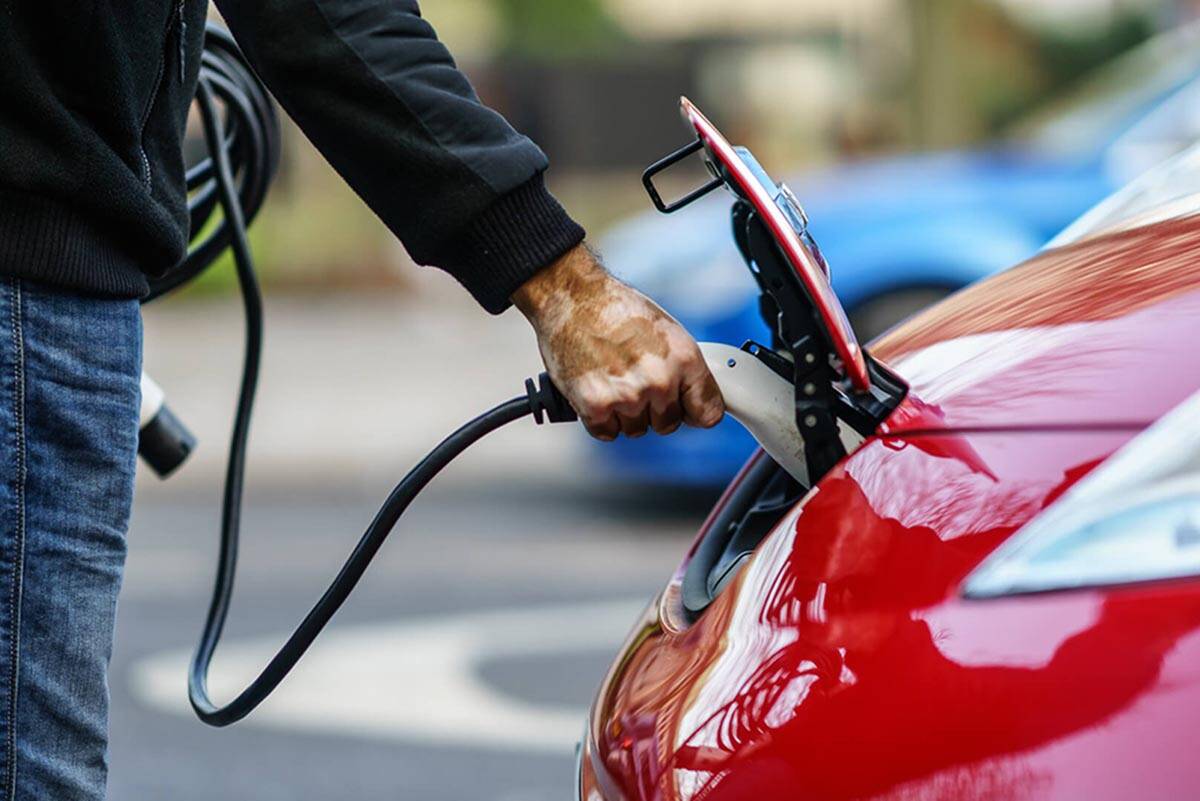RICH LOWRY: The secretary of transportation who couldn’t
Rarely has a Cabinet secretary done so little with such vast resources.
On the CBS show “Face the Nation,” Secretary of Transportation Pete Buttigieg had to defend the Biden administration’s woeful record of building new electric-vehicle charging stations that are key to unlocking its hoped-for EV nirvana. Host Margaret Brennan asked how it could be that, with $7.5 billion allocated for this purpose three years ago, the administration has managed to build eight. Not 8,000 or even 80. Eight.
Buttigieg said that President Joe Biden plans on building 500,000 chargers by the end of the decade, and — implying this is some sort of an accomplishment — “the very first handful of chargers are now already being physically built.”
It’s true that eight is better than zero, and the administration is now only 499,992 chargers away from its goal rather than 500,000 away. At this rate, though, the Emperor Hadrian wouldn’t have finished his wall prior to the fall of the Western Roman Empire, and we’d still be constructing Hoover Dam to this day.
Surely, the pace of the construction of charging stations will pick up, but the slowness out of the gate is a symptom of the folly of attempting to force a radical change in vehicular transportation via government fiat.
Buttigieg insists that “the EV revolution will happen with or without us,” yet it’s off to a sputtering start. It’s less a revolution than a shift in consumer preferences at the margins. There are signs that the uptake of EVs is slowing down. The New York Times reported that Ford and other automakers have tapped the brakes on EVs, a shift “prompted largely by the companies’ difficulties in making and selling enough electric cars and doing so profitably.” Is that all?
Part of the resistance to EVs is so-called range anxiety, the fear that if you can’t charge up in your garage or if you are on a long trip, you might not find a charging station. Hence, the imperative to build a more robust network of charging stations that has, so far, been going so poorly.
One problem with trying to build back better, or build at all, in the contemporary United States is that regulatory obstacles make it so difficult. Even when the future of the planet is supposedly at stake, nothing is simple or easy. According to a Politico report on the slow rollout of the charging stations, “States and the charger industry blame the delays mostly on the labyrinth of new contracting and performance requirements they have to navigate to receive federal funds.”
On top of this, the existing charging infrastructure is glitchy and prone to failure. The contrast with gas stations, which are ubiquitous and highly convenient, couldn’t be starker. The government didn’t have to subsidize the oil companies to construct gas stations at the beginning of the 20th century, or tell them to offer free maps, branch out into oil changes and other services or begin to stay open 24 hours.
There is, no doubt, a niche market for electric cars that will grow over time. Rather than letting this happen organically and in keeping with consumer preferences and sensible business choices by car manufacturers, the mandarins of the Biden administration are trying to force a transformation that drivers aren’t ready for and the infrastructure doesn’t yet exist to support. Secretary Buttigieg so far has had to explain away failure, and he might have to get used to it.
Rich Lowry is on X @RichLowry.

















